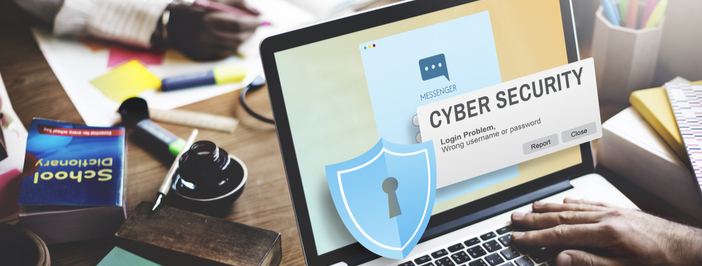8 cybersecurity practices your staff should understand
There’s no doubt that cybersecurity threats are on the rise, and every business is a potential target. So aside from partnering with a managed services provider, how do you keep your company’s data safe? By ensuring your staff takes cybersecurity seriously. Here’s what you need to know.
Why staff education matters
Not convinced you should invest in cybersecurity training for your staff? Here are two reasons why employee security education should be a top priority.
- Out of the respondents to a recent study, 78% of employees accidentally put company data at risk.
- Another survey shows that 59% of SMBs rely on employees telling them about cybersecurity incidents or else they won’t know about them.
What do these figures mean? It’s simple. Employees are a front-line defense against cyber threats, but many simply don’t know how to protect your data in the first place. So what can you do? It all begins with security training — here are eight things to teach your staff now.
1. Use strong passwords
Don’t know where to start with security education? Start with passwords. Ensure staff:
- Choose strong passwords that are hard to guess.
- Keep those passwords safe.
- Change them regularly.
2. Avoid clicking unknown links
Hackers often impersonate legitimate contacts and send emails encouraging recipients to click on malicious links. Once your employee clicks a bad link, you could lose sensitive data.
Train staff to only ever click links sent by verified and trusted senders. They should report all other suspicious links and emails to IT.
3. Protect data
Teach staff acceptable data practices. They shouldn’t share any company information with unauthorized personnel, and they should know how to delete data they don’t need anymore safely.
4. Choose secure connections
Staff security education doesn’t end in the office. When staff work remotely or use their own devices, ensure they know how to choose safe WiFi connections. Ideally, they should always use a secure, private network at home.
You must also provide a secure WiFi network in the office, and staff should know how to access it properly.
5. Use firewalls
Staff should always use firewall protection, whether they’re at home or in the office. You should also make sure they know how to install software updates when they become available.
6. Back up data
Your employees must know how to securely back up company data. Otherwise, you risk losing sensitive, irretrievable data to cyberattacks. Set and enforce clear rules about how they should back up data.
7. Follow instructions
Essentially, you’re trying to create a cybersecurity culture. So, draft clear cybersecurity policies and training manuals, and check that your employees understand them. Update these policies at regular intervals.
8. Ask questions
Security education never ends because new cybersecurity threats emerge all the time. Encourage staff to communicate with your IT provider and ask questions whenever they’re unsure of something. They should also feel safe reporting possible cybersecurity incidents as soon as they arise — accidents happen, and the quicker they’re dealt with, the safer your data will be.
Takeaway
Your employees are your first line of defense against cybersecurity incidents. That’s why they need the right security education to keep your data safe. For more information on good cybersecurity practices for your workplace, contact us today.























